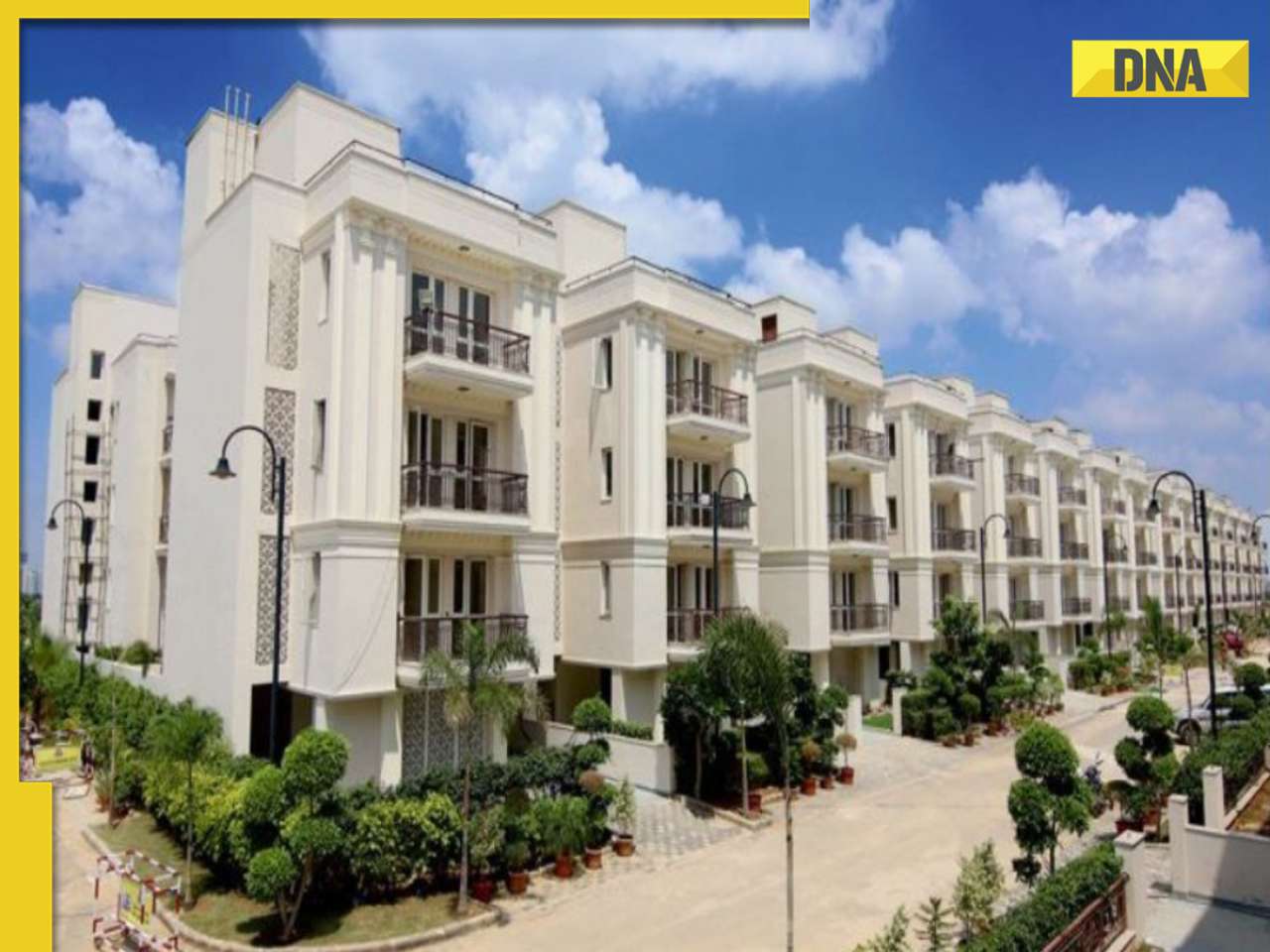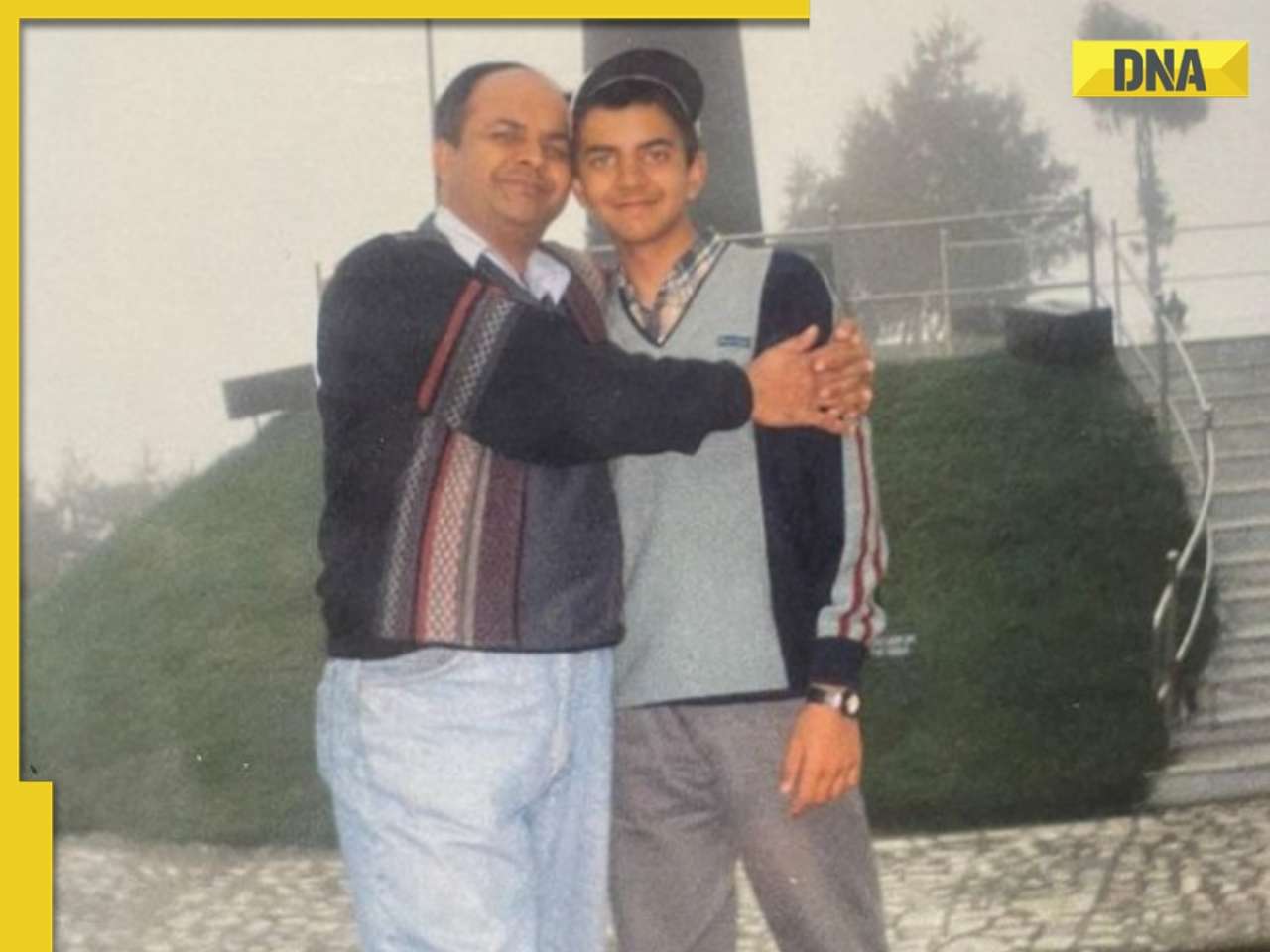July 6-12 is Alzheimer’s week around the world. DNA talks to doctors, families and professionals in Bangalore and finds that the battle against Alzheimer’s is sometimes tougher for caregivers than for patients.
Sheela Shastri* and her husband Sumit Shastri* had never had a problem understanding each other. They stuck by each other’s side through a married life spanning more than three decades.
But recently, Sumit’s behaviour had become Sheela’s biggest worry — he was irritable, he couldn’t tell the difference between the toilet and the bathroom, he insisted on going for an evening stroll even if it was pouring outside.
“Sheela’s biggest complaint was that her husband would urinate in the bathroom instead of the toilet. She used to think that he did that on purpose and would at times shout at him,” says Dr Soumya Hegde, consultant psychiatrist, Nightingale’s Centre for Ageing and Alzheimer’s. “Her husband was suffering from Alzheimer’s disease. It was only due to Sumit’s early diagnosis that his wife can now cope with the situation,” says the doctor.
A degenerative brain disorder, Alzheimer’s is certainly not curable, but it can be dealt with better if people start recognising the early signs of the disease. “All of us expect our elders to start forgetting things as they grow old.
However, memory loss associated with age should not be confused with memory loss due to Alzheimer’s,” says Dr Hegde. “For instance, if an old person in the family forgets about the milk on the gas and recalls it later, one can say that his memory loss is associated with age. However, if he forgets about it and has no recollection of the incident altogether — it is likely that it is Alzheimer’s.”
Apart from memory loss, symptoms such as impairment in decision-making, loss of sense of time and distance and difficulty in planning could also be associated with the initial stages of dementia.
“The inability to recognise a face generally creeps in in the later stages,” says Dr Hegde. “Early diagnosis and early medical intervention helps the patient as well as his family members. The family often finds it impossible to cope with behavioural changes in an Alzheimer’s patient as they can’t understand the situation. They must consult a doctor before things become worse.”
Dr Hegde also says often it is the caregivers’ inability to understand the patient’s mind which leads to behavioural trouble. “Psycho therapy in the initial stages of Alzheimer’s can better the situation for both the sufferer and the caregiver,” says Dr Hegde.
Priyamvada, part of the organising committee of Sandhya Kiran, a day-care centre for Alzheimer’s patients in Shanthi Nagar, says, “Patients with Alzheimer’s need a lot of attention and care all the time.
They fear things around them and one needs patience to deal with them. A day-care centre is a good option as we are trained in dealing with these senior citizens and don’t take their behaviour personally either. In my opinion, no matter what one says to console the family members, it is very difficult for them to deal with the patient’s behaviour and not take it personally.”
Raj B*, whose mother is an Alzheimer’s patient, says, “There have been times when I have felt low because my mother refused to recognise me. Even though I know about her medical condition, I can’t help feeling depressed.”
Despite the rising awareness of dementia in the country, the disease still has a lot of stigma attached to it, say doctors. People find it hard to accept that a family member, especially a close one, is suffering from the dreaded disease.
In 2005, it was estimated that in Bangalore alone, there are more than 32,000 Alzheimer’s patients, “it must have almost doubled by now”, says Dr Radha Murthy, founder of the Nightingales Medical Trust and head of the Alzheimer’s and Related Disorders Society of India (ARDSI), Bangalore chapter.
“Apart from providing medical care at the doorstep, we have a comprehensive centre for Alzheimer’s patients in Kasturi Nagar. The centre provides day-care facilities, respite care (for a few days or months) and long-term care to Alzheimer’s patients,” says Dr Murthy, adding that the family-based support system is one of the most effective ways of battling this disease, especially in this country.
For any queries related to Alzheimer’s, you can call 9342730936/ 9342730959.
![submenu-img]() Anant Raj Ventures into tier 2 and tier 3 cities, pioneering growth in India’s real estate sector
Anant Raj Ventures into tier 2 and tier 3 cities, pioneering growth in India’s real estate sector![submenu-img]() Sophie Turner reveals she wanted to terminate her first pregnancy with Joe Jonas: 'Didn't know if I wanted...'
Sophie Turner reveals she wanted to terminate her first pregnancy with Joe Jonas: 'Didn't know if I wanted...'![submenu-img]() Meet outsider who was given no money for first film, battled depression, now charges Rs 20 crore per film
Meet outsider who was given no money for first film, battled depression, now charges Rs 20 crore per film![submenu-img]() This is owner of most land in India, owns land in every state, total value is Rs...
This is owner of most land in India, owns land in every state, total value is Rs...![submenu-img]() Meet man who built Rs 39832 crore company after quitting high-paying job, his net worth is..
Meet man who built Rs 39832 crore company after quitting high-paying job, his net worth is..![submenu-img]() Meet woman who first worked at TCS, then left SBI job, cracked UPSC exam with AIR...
Meet woman who first worked at TCS, then left SBI job, cracked UPSC exam with AIR...![submenu-img]() Meet engineer, IIT grad who left lucrative job to crack UPSC in 1st attempt, became IAS, married to an IAS, got AIR...
Meet engineer, IIT grad who left lucrative job to crack UPSC in 1st attempt, became IAS, married to an IAS, got AIR...![submenu-img]() Meet Indian woman who after completing engineering directly got job at Amazon, then Google, Microsoft by using just...
Meet Indian woman who after completing engineering directly got job at Amazon, then Google, Microsoft by using just...![submenu-img]() Meet man who is 47, aspires to crack UPSC, has taken 73 Prelims, 43 Mains, Vikas Divyakirti is his...
Meet man who is 47, aspires to crack UPSC, has taken 73 Prelims, 43 Mains, Vikas Divyakirti is his...![submenu-img]() IIT graduate gets job with Rs 100 crore salary package, fired within a year, he is now working as…
IIT graduate gets job with Rs 100 crore salary package, fired within a year, he is now working as…![submenu-img]() DNA Verified: Is CAA an anti-Muslim law? Centre terms news report as 'misleading'
DNA Verified: Is CAA an anti-Muslim law? Centre terms news report as 'misleading'![submenu-img]() DNA Verified: Lok Sabha Elections 2024 to be held on April 19? Know truth behind viral message
DNA Verified: Lok Sabha Elections 2024 to be held on April 19? Know truth behind viral message![submenu-img]() DNA Verified: Modi govt giving students free laptops under 'One Student One Laptop' scheme? Know truth here
DNA Verified: Modi govt giving students free laptops under 'One Student One Laptop' scheme? Know truth here![submenu-img]() DNA Verified: Shah Rukh Khan denies reports of his role in release of India's naval officers from Qatar
DNA Verified: Shah Rukh Khan denies reports of his role in release of India's naval officers from Qatar![submenu-img]() DNA Verified: Is govt providing Rs 1.6 lakh benefit to girls under PM Ladli Laxmi Yojana? Know truth
DNA Verified: Is govt providing Rs 1.6 lakh benefit to girls under PM Ladli Laxmi Yojana? Know truth![submenu-img]() In pics: Taarak Mehta Ka Ooltah Chashmah actress Deepti Sadhwani dazzles in orange at Cannes debut, sets new record
In pics: Taarak Mehta Ka Ooltah Chashmah actress Deepti Sadhwani dazzles in orange at Cannes debut, sets new record![submenu-img]() Ananya Panday stuns in unseen bikini pictures in first post amid breakup reports, fans call it 'Aditya Roy Kapur's loss'
Ananya Panday stuns in unseen bikini pictures in first post amid breakup reports, fans call it 'Aditya Roy Kapur's loss'![submenu-img]() Remember Harsh Lunia? Just Mohabbat child star, here's how former actor looks now, his wife is Bollywood's popular...
Remember Harsh Lunia? Just Mohabbat child star, here's how former actor looks now, his wife is Bollywood's popular...![submenu-img]() Mother's Day 2024: Bollywood supermoms who balance motherhood, acting, and run multi-crore businesses
Mother's Day 2024: Bollywood supermoms who balance motherhood, acting, and run multi-crore businesses![submenu-img]() Rocky Aur Rani's Golu aka Anjali Anand shocks fans with drastic weight loss without gym, says fitness secret is...
Rocky Aur Rani's Golu aka Anjali Anand shocks fans with drastic weight loss without gym, says fitness secret is...![submenu-img]() Haryana Political Crisis: Will 3 independent MLAs support withdrawal impact the present Nayab Saini led-BJP government?
Haryana Political Crisis: Will 3 independent MLAs support withdrawal impact the present Nayab Saini led-BJP government?![submenu-img]() DNA Explainer: Why Harvey Weinstein's rape conviction was overturned, will beleaguered Hollywood mogul get out of jail?
DNA Explainer: Why Harvey Weinstein's rape conviction was overturned, will beleaguered Hollywood mogul get out of jail?![submenu-img]() What is inheritance tax?
What is inheritance tax?![submenu-img]() DNA Explainer: What is cloud seeding which is blamed for wreaking havoc in Dubai?
DNA Explainer: What is cloud seeding which is blamed for wreaking havoc in Dubai?![submenu-img]() DNA Explainer: What is Israel's Arrow-3 defence system used to intercept Iran's missile attack?
DNA Explainer: What is Israel's Arrow-3 defence system used to intercept Iran's missile attack?![submenu-img]() Sophie Turner reveals she wanted to terminate her first pregnancy with Joe Jonas: 'Didn't know if I wanted...'
Sophie Turner reveals she wanted to terminate her first pregnancy with Joe Jonas: 'Didn't know if I wanted...'![submenu-img]() Meet outsider who was given no money for first film, battled depression, now charges Rs 20 crore per film
Meet outsider who was given no money for first film, battled depression, now charges Rs 20 crore per film![submenu-img]() Meet actress who quit high-paying job for films, director replaced her with star kid, had no money, now lives in...
Meet actress who quit high-paying job for films, director replaced her with star kid, had no money, now lives in...![submenu-img]() This star kid's last 3 films lost Rs 5000000000 at box office, has no solo hit in 5 years, now has lost four films to...
This star kid's last 3 films lost Rs 5000000000 at box office, has no solo hit in 5 years, now has lost four films to...![submenu-img]() Meet actress viral for just walking on screen, belongs to royal family, has no solo hit in 15 years, but still is…
Meet actress viral for just walking on screen, belongs to royal family, has no solo hit in 15 years, but still is…![submenu-img]() This is owner of most land in India, owns land in every state, total value is Rs...
This is owner of most land in India, owns land in every state, total value is Rs...![submenu-img]() Blinkit now gives free dhaniya with veggie orders, thanks to Mumbai mom
Blinkit now gives free dhaniya with veggie orders, thanks to Mumbai mom![submenu-img]() Meet man, an Indian who entered NASA's Hall of Fame by hacking, earlier worked on Apple's...
Meet man, an Indian who entered NASA's Hall of Fame by hacking, earlier worked on Apple's...![submenu-img]() 14 majestic lions cross highway in Gujarat's Amreli, video goes viral
14 majestic lions cross highway in Gujarat's Amreli, video goes viral![submenu-img]() Here's why Isha Ambani was not present during Met Gala 2024 red carpet
Here's why Isha Ambani was not present during Met Gala 2024 red carpet























































)
)
)
)
)
)